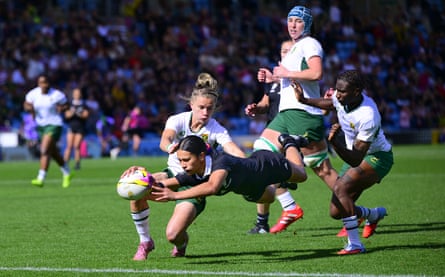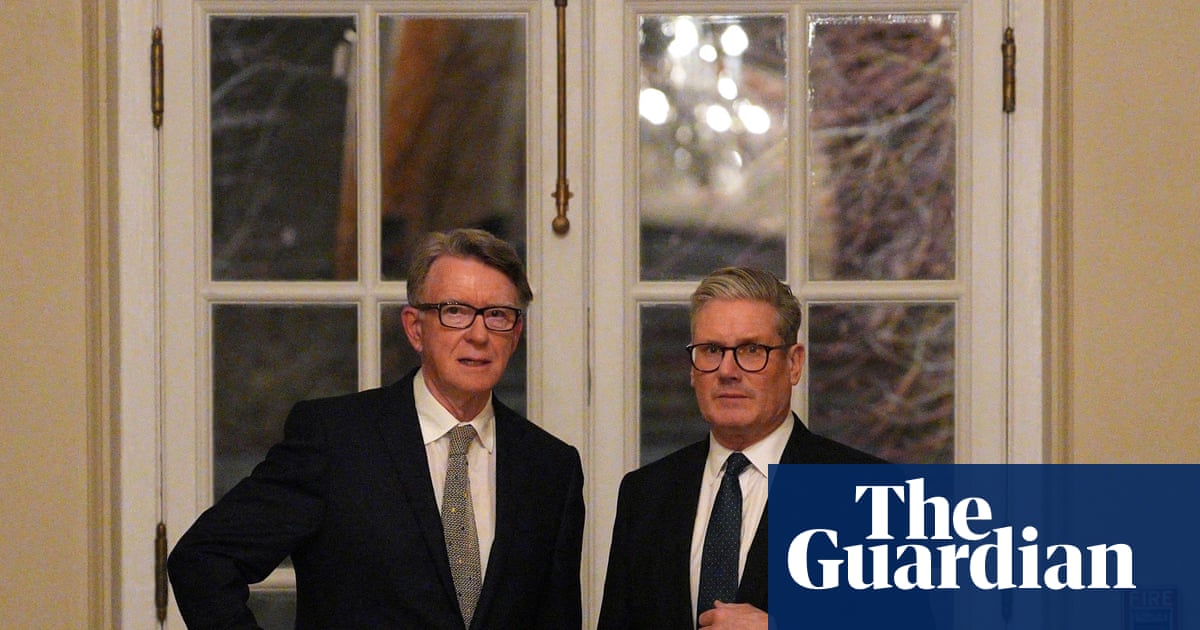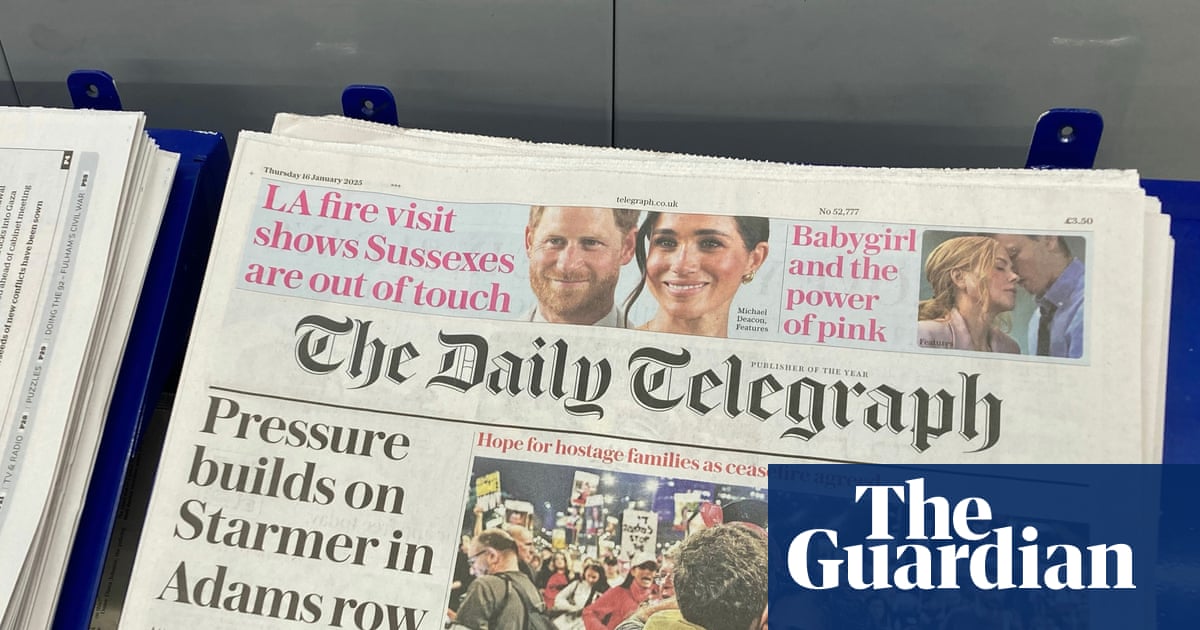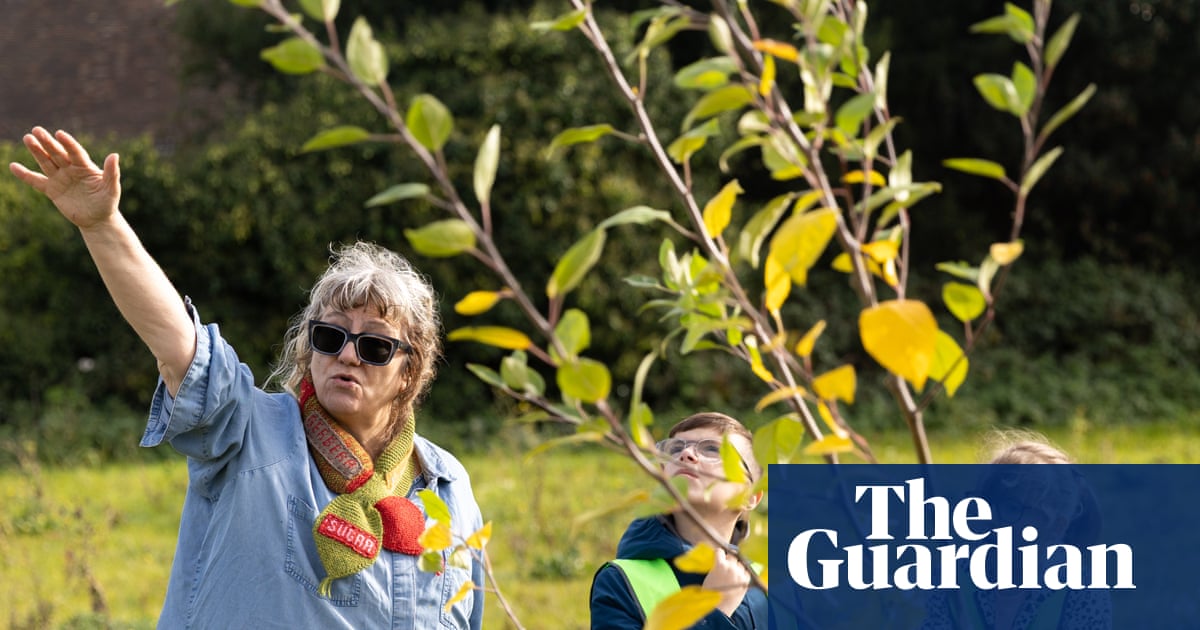I have a friend who rejects the notion of “guilty pleasures”. There is, she argues, plenty of real and justified guilt in the world, without co-opting it to our choice of trash TV or an unkickable penchant for romantasy novels. She’s a helpful touchstone when I hear myself trying to justify the silly superhero film I went to see at the cinema on the basis that it might have carried an underlying anti-fascist message (if you squinted hard enough at the screen). My friend will sigh kindly and then remind me: sometimes it’s OK just to enjoy things.
It is, perhaps, a lesson we particularly struggle with in sport because of its very nature. A huge part of our investment is grounded in the result and its consequences for whichever athlete or team we prefer. Ask a football fan if they enjoyed themselves at the match they just paid a decent whack to see, and there’s a better-than-even chance they will tell you no. If it was a close match, they will have been too anxious to have fun; if they lost they will be mourning their defeat. Even if their own side ran rampant, you can find them complaining about the lack of challenge or jeopardy.
We are, as fans, especially averse to one-sided games, which can feel anything from a deflationary disappointment to a waste of everybody’s time. This is why the current Women’s Rugby World Cup is such a curious phenomenon. The tournament has been one of largely lopsided scorelines, from the group stages to the quarter-finals. Only five of the 28 fixtures have been decided by fewer than 14 points, and more than half were won by more than 40 – at least six scores. And yet there remains a profound and unanimous pleasure to be had across the entire affair: it’s hard to find anyone that’s watching along and not enjoying it.
Since the opening game between England and USA a festival atmosphere – prevalent at every ground from Sunderland to Bristol to Brighton – has been successfully transmitted through our television screens thanks to some excellent broadcasting decisions from the BBC (signing Ruby Tui was a stroke of genius). Meanwhile the action on the pitch has delivered flair and fascination, even on days when the rain has lashed down until the ball is butter and the scrums steam like suet pudding. The match-ups may be uneven but the power and athleticism on display on all sides of the pitch have been mesmerising.
Sure, the host nation’s dominance is a natural mood enhancer. England’s vast buffer of experience and professionalism has allowed them to see off whatever challenges are temporarily posed: fans have been able to relax and enjoy the show even when their team is not at its brilliant best. That’s only part of the picture, however. It doesn’t encompass the joyful embrace of The Kid, New Zealand’s 18-year-old top try-scorer Braxton Sorensen-McGee (whose daring dashes down the wing could well knock England’s cowgirls out of their saddles if the two sides meet). It can’t account for the bipartisan cheer when Spain, 54-3 down against those same Black Ferns, scored an 83rd-minute try.

More than a year ago, industry insiders involved in women’s sport were predicting the captivating success of this World Cup, arriving on the back of a Lionesses campaign and in the wake of Ilona Maher’s single-handed social media takeover of rugby union. More than one said privately that 2025 would be the year rugby “flipped” and a women’s event outperformed the Lions tour. The men certainly delivered intense drama and historic scenes as Maro Itoje led the Lions to victory in the second Test. But they didn’t do it to a TV audience of 4.6m. And no one in the team was wearing a cowboy hat or banging on drums from the stands.
It’s that quirky, come-as-you-are quality that is this current tournament’s greatest triumph. Even as it has taken its slickly commercialised place in a crammed calendar of global sporting events, this Rugby World Cup still seems fuelled by a radiant and irrepressible delight. Plenty of stadiums work hard to create a party atmosphere but you don’t get the sense that anyone here is forcing or faking it. Not when players are taking up their positions before kick-off still lip-syncing to the music on the PA.
Other sports – and more pertinently their investors – will be analysing this fan engagement and wondering how to replicate it. Good luck to them. The core of rugby union’s appeal is its eclecticism and the personalities that beam from the women’s game are one-of-a-kind. There’s the South African No 8 Aseza Hele, nicknamed flower or “Blommie” off the pitch for her sweet nature, who struggles even to recognise herself when she’s sandbagging the opposition. There’s Abby Dow, the lethal finisher who you’ll find neatly crocheting referees’ whistles in the dugout.
This is a sporting sorority that confounds and confuses boringly predictable stereotypes of how a woman looks and behaves – Anne-Marie’s song choice of Psycho at the climax of the opening ceremony could not have been better chosen – while simultaneously wreathing itself in Barbie pink, 90s girl-power nostalgia, make-up tie-ins. There’s a freedom in the way this tournament has joyfully embraced it all and cared not one brass farthing for your opinion. And who would dare to mess with this powerful pack?
after newsletter promotion
The Red Roses’ adopted slogan is “for the girls”. It is, of course, a marketing tactic as much as a rallying cry, but it came directly from team conversations and reflects something quite true about the women’s rugby community, that is a place where people are for each other, not against them. Their fast-growing fanbase, many of whom have only discovered the sport in the past couple of years, do not show up to games with the typical baggage: decades of disappointment, crusted-over anger, inherited and inexplicably toxic rivalries.
They have found their way to this sport along far less tribal pathways, through body-positive TikTok videos and Ellie Kildunne’s haircare tips. There has been no male gatekeeping here, no trivia questions to establish whether you really belong: everyone is instantly welcome.
It may be this is all just a function of where the sport is at developmentally. Growth will, of course, bring change, just as it has for women’s football. Perhaps the gleaming sense of fun will tarnish with time and corporate takeover, and perhaps not. For now, it’s OK to just enjoy things.

.png) 1 month ago
40
1 month ago
40

















































